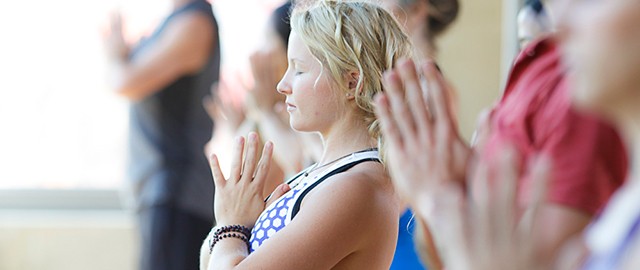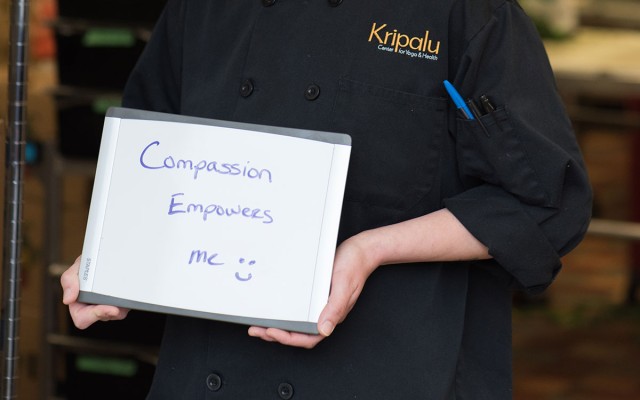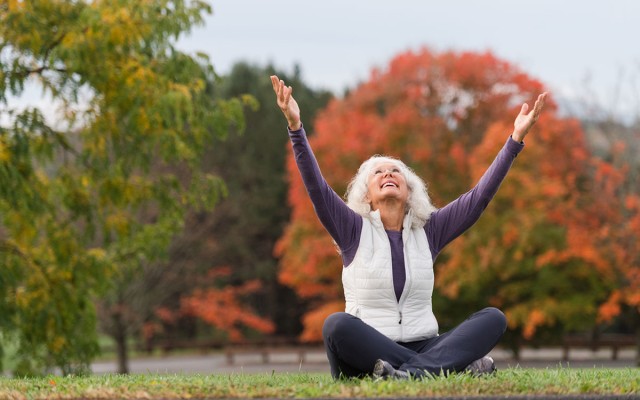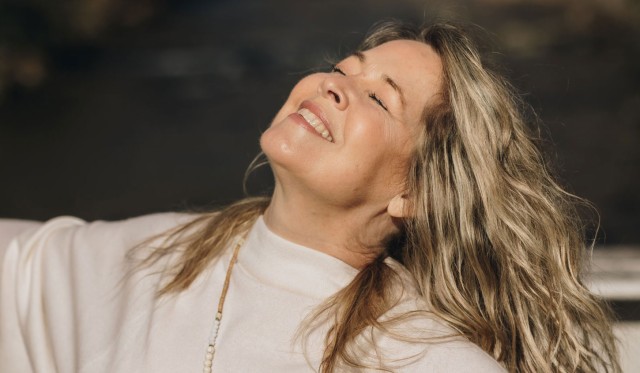Sorry Not Sorry: How to Stop Apologizing and Start Saying No

Wayne Dyer, the self-development author and speaker, once said, “When given the choice between being right and being kind, choose kind.” Sage advice, no doubt. But what if the choice to be kind to others is made at the expense of being kind to ourselves?
When we agree to requests or invitations because we think we should, when we prioritize others’ needs over our own, when we offer instant apologies for things that aren’t our fault, we may be suffering from the “disease to please,” which can deplete our energy, breed resentment, and cause us to feel out of alignment with ourselves. It’s a malady that afflicts far more women than men.
“It comes back to conditioning,” says Izzy Lenihan, life, career, and wellness coach at Kripalu. “Many women are brought up to be people-pleasers. Like their mothers, they were taught to please others, to be obedient and compliant. It’s not uncommon for women to carry these traits into adult life until they come to the realization that they’re no longer serving them. They’re saying yes to everyone else, and forgetting to say yes to themselves.”
Sorry No More
When we say yes all the time, we often end up straining our energy and our schedule, which can lead to feeling drained, short-tempered, and bitter. By trying to be a “good” and “selfless” person, we end up making ourselves miserable. “It’s the perfect recipe for martyrdom,” says Izzy.
That’s also true when it comes to the stereotypically female trait of over-apologizing. Izzy says this comes from the same source as not being able to say no. “It’s all integrated. Often what’s behind our knee-jerk apologies is this deeper desire not to want to disappoint or offend anybody.”
Izzy suggests making a point of noticing how many times you apologize when you don’t need to, such as when someone bumps into you and yet you’re the one to say, “Excuse me, I’m sorry.” “It’s about self-worth,” she says. “We don’t believe that we’re worthy of taking up space, of being treated with respect.”
She admits to over-apologizing herself. “The other day,” she recalls, “I was running a meeting that was supposed to start at one o’clock. When one of the participants showed up 10 minutes late, I found myself saying, ‘I’m sorry, but we had to start the meeting without you.’”
While it might seem harmless to offer a quick apology in an effort to be nice and keep the peace, Izzy contends that there’s actually a downside. “It’s a constant message to ourselves that we aren’t worthy, that we’re not enough, that we have to take responsibility for everybody’s suffering and discomfort,” she says. “When we’re always apologizing, we confirm a deep belief that we’re doing something wrong. And how do we show up in life when we believe we’re always doing something wrong? We over-give, over-do, overcompensate, and over-tolerate.”
Selfishness vs. Self-Fullness
How do we stop apologizing and start saying no? It begins with self-care, Izzy says, which she also calls “self-fullness.” Self-fullness refers to the things that help fill our wells, like exercise, good nutrition, and plenty of sleep, the foundational pillars of self-care. “But self-fullness also means inviting joy into your life,” Izzy says. “It means creating healthy boundaries. It means taking time to listen to your inner voice. And it also means that you might make somebody else mad. It’s a sacred practice of detaching from the good and/or bad opinions of others.”
Izzy often reminds clients and students that it’s not selfish to practice self-care. In her Kripalu R&R Retreat workshop on self-care, she asks participants to list three things in their life that they would be willing to begin saying no to. Then she asks them to reflect on what space that might open up for saying yes to three things they’re excited about. Could saying no create more room for exploring their creativity, investing in an important relationship, or enjoying the great outdoors?
“If we stop saying yes to everybody’s requests, we have room to be more patient, loving, and kinder to ourselves,” Izzy notes. “We also have room to discover who we truly are.”
Along with self-care, self-forgiveness is also key for healing the wounds in our hearts that have resulted in beliefs that we’re not good enough. “Practicing self-forgiveness sets us free,” Izzy says. “If we begin to forgive ourselves and feel it’s okay not to be perfect and that we’re not responsible for everyone and everything, we’re less apt to be apologizing all the time and saying yes when we don’t want to.”
Here are Izzy's tips for how to get better at saying no and avoiding over-apologizing.
Tune into your body: When someone asks you to do something or when you have the urge to apologize, take a moment before speaking to notice the sensations in your body. Does your throat feel tight? Do you have a sinking feeling in your gut? Are your shoulders creeping up to your ears? Is your breath becoming shallower? “These are all clues that you don’t want to do what you’re being asked to do or think you ‘should' do,” says Izzy.
Allow yourself to be uncomfortable: If you’re on the verge of saying no to a request or refusing to accept responsibility for something that isn’t yours to own up to, you may have to wrestle with the risk of hurting someone’s feelings, letting someone down, or perhaps being disliked. “This invites an opportunity for personal growth and self-awareness,” Izzy explains, noting that times of stress and discomfort can be launching pads for transformation. “Breathe into wherever you feel the tension in your body. There’s a saying we have at Kripalu: ‘Find the comfort in the discomfort.’”
Remind yourself why it’s important: “Invite loving and kind words to yourself, words that you’d say to a friend,” Izzy suggests, such as I deserve free time in my schedule; I’m coming from a loving place as I set new boundaries; or I give myself permission not to take responsibility for other people’s feelings or reactions.
Ultimately, the more we refrain from saying sorry when apologies aren’t warranted, the less we apologize for taking up space and being who we are. And the more we speak up and say no when we’re asked if we like something we don’t like or if we can do something we don’t want to do, the happier we become.
“We have healthier relationships, better boundaries, more respect, and more support,” Izzy says. “We become role models for our children. We make space for exploring our authentic selves and expressing our creativity. We lean more easily towards joy and invite pleasure into our life without guilt.”
Portland Helmich has been investigating natural health and healing for more than 15 years, as a host, reporter, writer, and producer.
Full Bio and Programs


